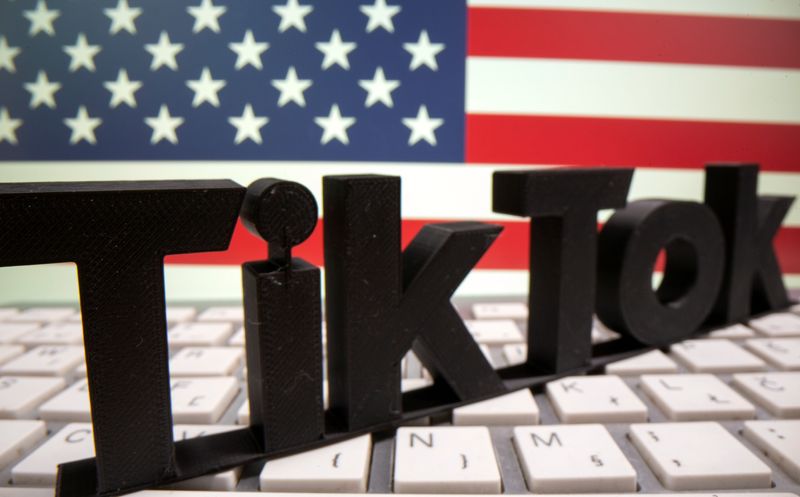By David Shepardson
(Reuters) -A U.S. judge on Thursday heard arguments on Montana's first-of-its kind state ban on the use of short-video-sharing app TikTok, considering a legal challenge before it is set to take effect on Jan. 1.
U.S. District Judge Donald Molloy, considering a court challenge from TikTok and users, questioned the state attorney general's office at a hearing on the state's ban which was approved by the legislature.
He noted that no other state has followed suit to ban TikTok. "Does that seem a little strange to you?" Molloy asked during the hour-long hearing in Missoula, Montana.
TikTok, which is owned by China's ByteDance, sued in May, seeking to block the U.S. state ban on several grounds, arguing that it violates the First Amendment free speech rights of the company and users. A separate lawsuit has been filed by TikTok users in Montana.
TikTok, which has more than 150 million U.S. users, is used by more than a third of Montana residents, the company says.
Molloy, who was appointed to the bench by Democratic President Bill Clinton, separately questioned the state's argument that the ban is necessary to protect the data of TikTok users in the state and questioned if the state was being "paternalistic."
"Everybody on TikTok voluntarily gives their personal data. So if they want to give that information to whatever the platform is, how is it that you can protect them?" Molloy asked.
He suggested he state was saying, "These people don't know what they're doing. They're exposing themselves to the Chinese military. So we need to say 'ban Tiktok citizens from exercising certain individual liberties.'"
Molloy said he would rule as quickly as possible.
Montana Solicitor General Christian Corrigan said states often act alone and cited California's recent restrictions on food additives. "Just because one state is the first to do something, doesn't mean it's necessarily out of step," Corrigan said.
Corrigan also argued the state could act even if consumers handed over data voluntarily, comparing it to residents using an offshore sports gambling website that posed a risk to consumers of having credit card numbers stolen.

TikTok lawyer Alexander Berengaut said in the hearing the Montana ban ran afoul of the First Amendment and was also pre-empted by federal law because the state was trying "to declare a foreign policy for the state of Montana" - a matter left to the federal government.
On Tuesday, Utah sued TikTok, accusing it of harming children by intentionally keeping young users spending unhealthy amounts of time on the short-video sharing platform. The lawsuit is similar to actions brought by Indiana and Arkansas.
